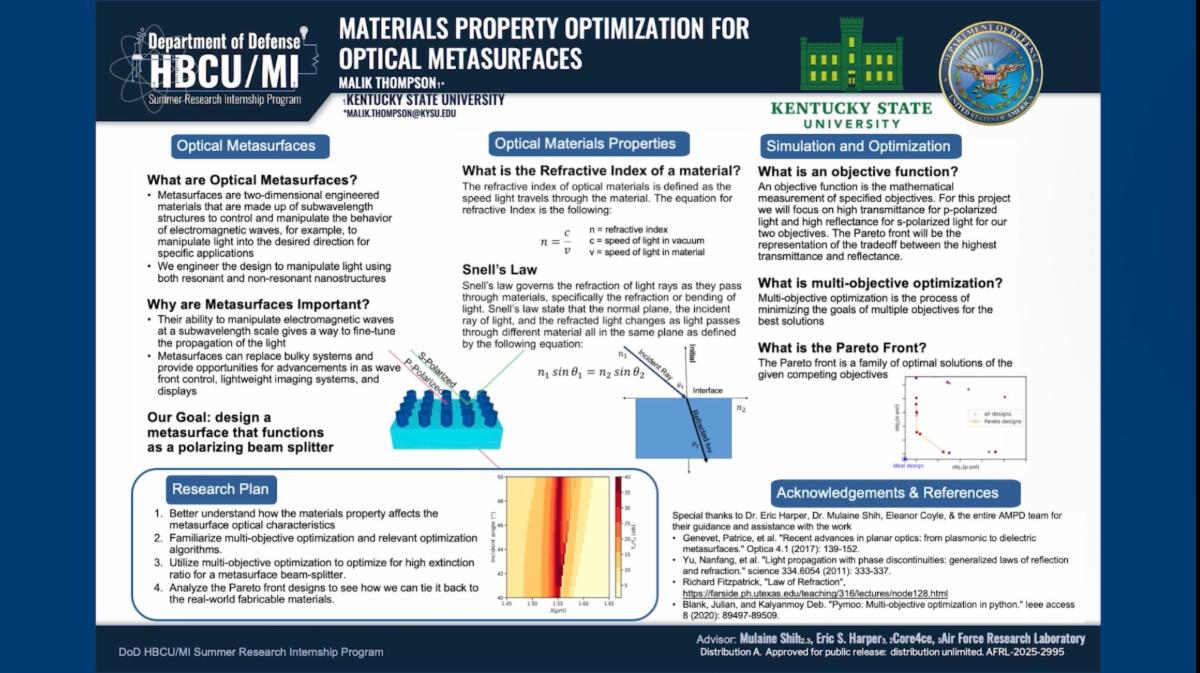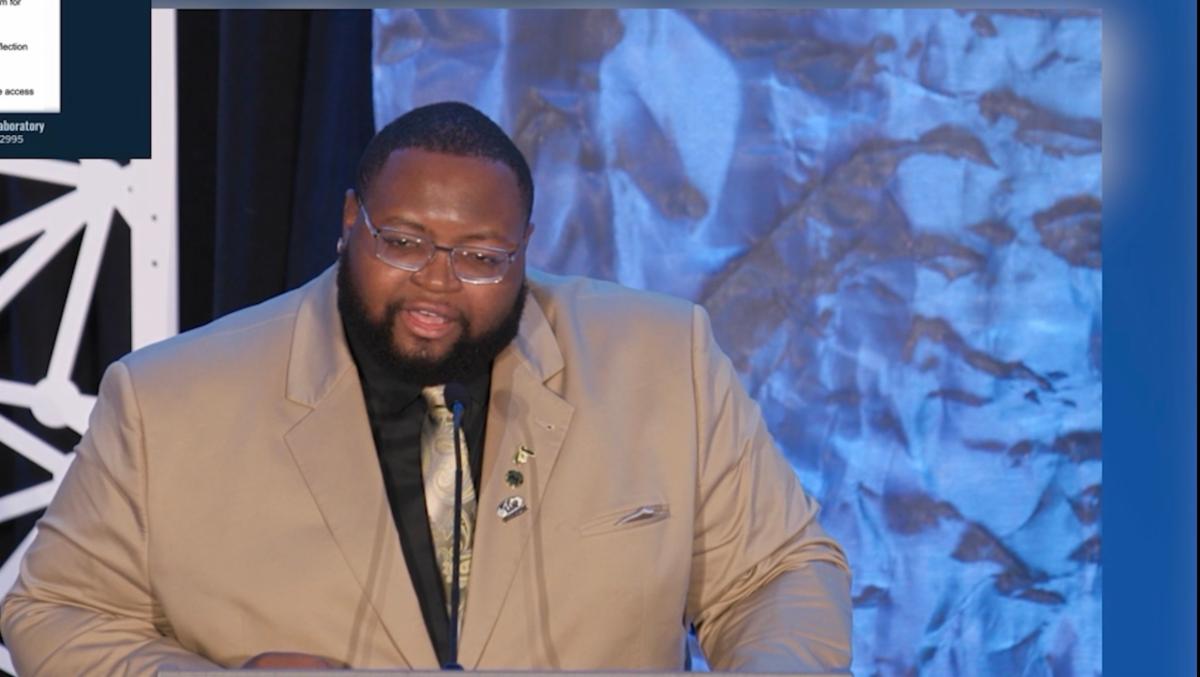The best internships don’t just change a resume — they change what’s possible for
everyone who comes next. That’s the mindset graduate student Malik Thompson brought
to a four-month federal research lab internship from May to August 2025, and it’s
the momentum he’s bringing back to Kentucky State University.
Through the U.S. Department of Defense HBCU/MSI Summer Research Internship Program,
Thompson joined a team at Wright–Patterson Air Force Base in Dayton, Ohio, modeling
an engineered metasurface designed to function as an optical device. Because the project
was fully computational, he ran large-scale simulations in Python within cloud environments,
translating classroom learning into real-world problem-solving across computer science,
engineering, and nanotechnology.
“The pace and rigor reset my expectations for research,” Thompson said. “Running high-performance
simulations and working with scientists every day showed me how to take classroom
theory and make it work at scale.”
Back in Frankfort, Thompson documented application timelines and tips, organized contacts
from the lab, and is coordinating with faculty to help more students compete for similar
placements.
Thompson’s work also extends to the Harvesting Potential Summer Agricultural Program,
a hands-on youth initiative that introduces high-school students to modern careers
in agriculture, ag-tech, and environmental science. Through field demonstrations,
workshops, and guided instruction with industry professionals, participants explore
drones, precision tools, sustainable farming practices, and team-based problem-solving.
As program director, Thompson will oversee the curriculum, hands-on sessions, and
all experiential components.
“Malik pairs technical skill with uncommon care for students,” said Dr. Jamaal Jackson,
head men’s basketball coach and grant lead for the program. “I’ve known him since
his undergraduate days at Kentucky State and selected him to direct the program because
he’s a builder of pathways. Under his leadership, high-school participants will get
a real, hands-on view of where ag-tech can take them.”
This is a prime example of how Thompson is applying what he learned — growing computational
research capacity at the university and bringing lab-level rigor into the classroom
as a teaching assistant, tutor, and proctor. And he’s doing so through the lens of
turning a single opportunity into many more for the students who follow.
A Kentucky State University graduate with a B.A. in mathematics (minor in physics)
and certificates in environmental measurements and geospatial information systems,
as well as a B.S. in computer science (mathematics concentration), Thompson is now
pursuing a master’s in computer science with a concentration in cybersecurity.

